20 Best Fruits for Healthy Aging
As we age, it becomes increasingly essential to uphold a nutritious diet to enhance overall wellness and longevity. Fruits play a vital role in a balanced diet, offering a wealth of vitamins, minerals, and antioxidants that can help protect against diseases associated with aging while helping us feel our best.
Here are 20 exemplary fruits that can aid in healthy aging, supporting various facets of our health as we mature.
Bananas
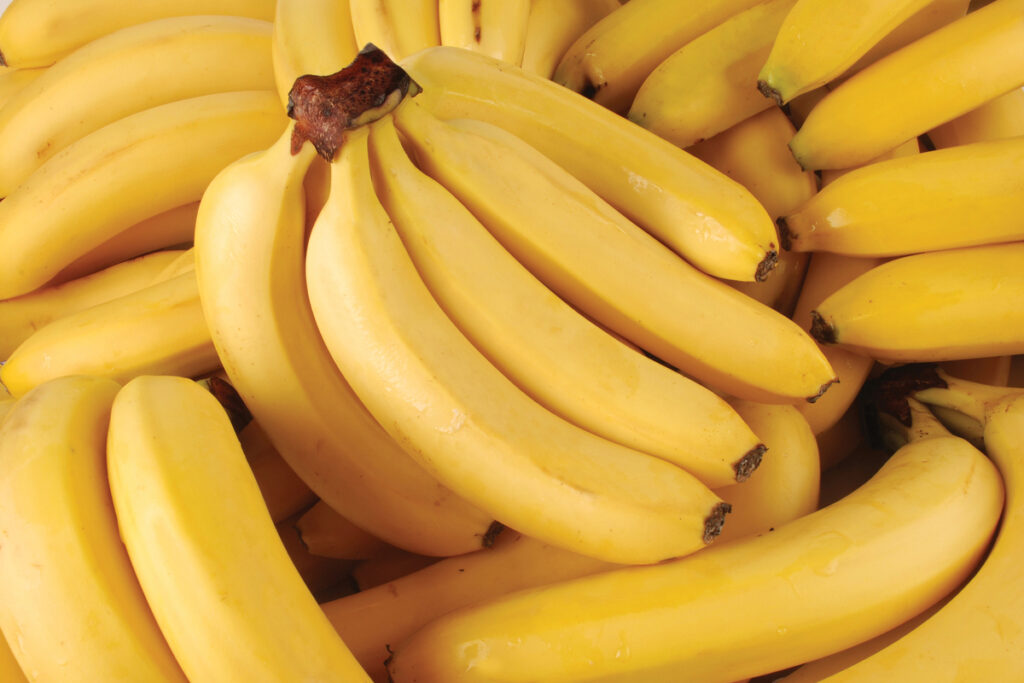
Bananas are a nutrient-dense fruit, recognized for their significant potassium levels, which are crucial for managing blood pressure and aiding muscle function. Potassium helps balance the impact of sodium in the body, assisting in the maintenance of healthy blood pressure. Additionally, potassium is vital for proper muscle behavior, including the contraction and relaxation of muscles.
Adding bananas to your diet can help ensure you’re meeting your potassium needs to support these important roles. Whether eaten as a quick snack, blended into smoothies, or mixed into oatmeal, bananas are an easy and delicious way to enhance your potassium intake and support your overall well-being.
Apples
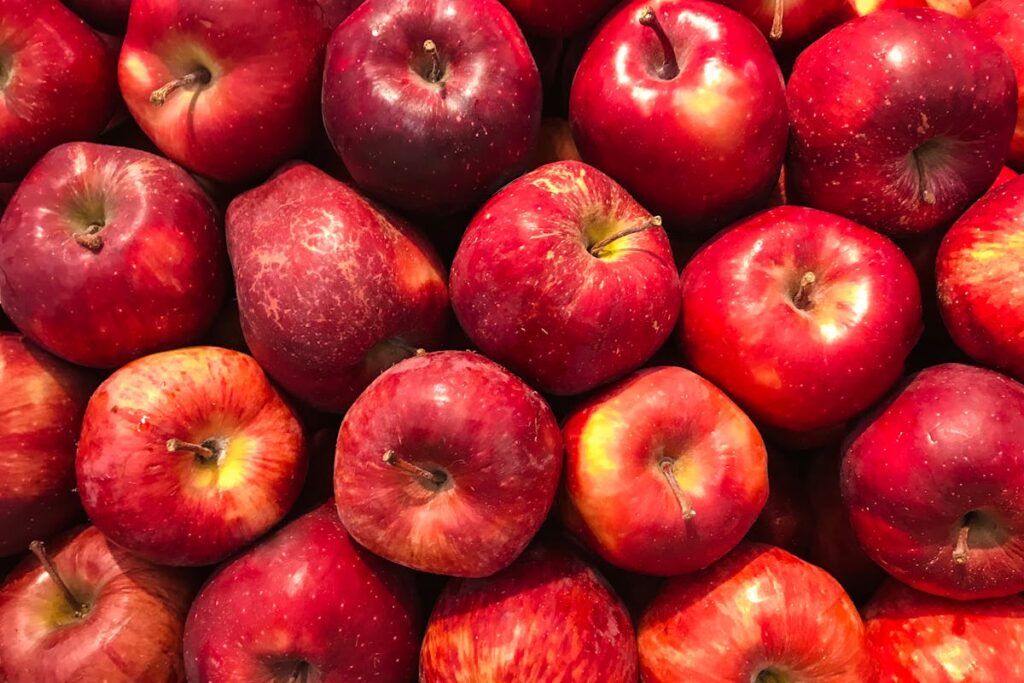
Apples are not only a delicious option but also a nutritional gem, rich in fiber and antioxidants that provide a host of health benefits. The fiber found in apples supports healthy digestion by promoting regular bowel movements and preventing constipation. Moreover, the antioxidants in apples, particularly flavonoids, may help lower the risk of heart disease by decreasing blood pressure and cholesterol levels.
Frequent consumption of apples has been associated with a reduced likelihood of stroke, heart attacks, and other cardiovascular concerns. Whether enjoyed whole, sliced in salads, or transformed into a delightful dessert, apples are a flexible and nutritious fruit that can support a healthy heart and digestive system.
Oranges
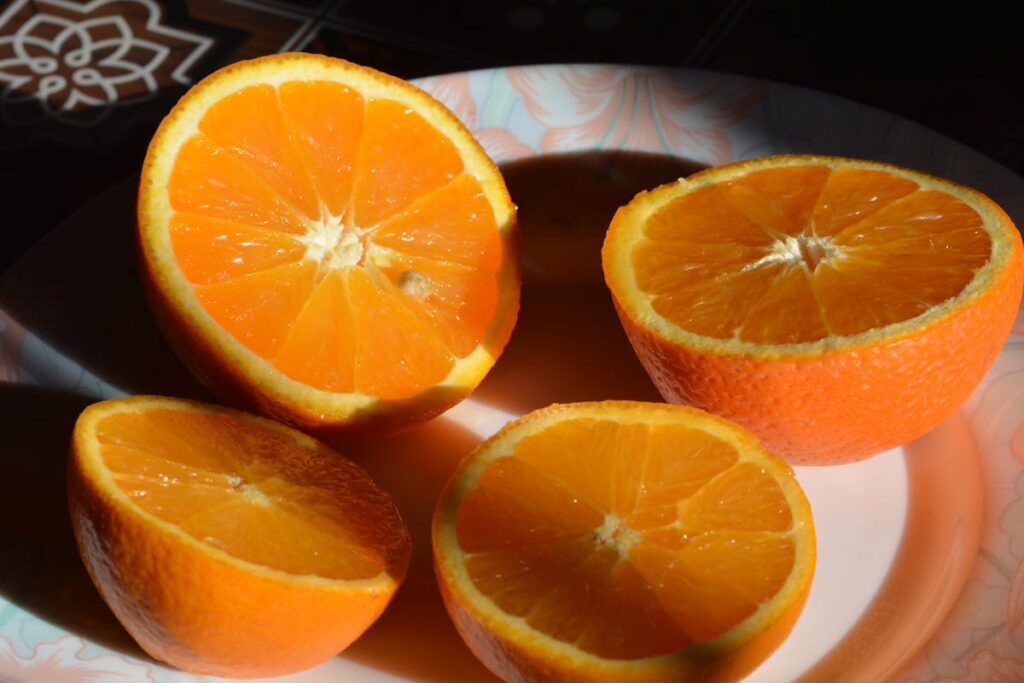
Oranges are not only delightful but also loaded with vitamin C, an essential nutrient for bolstering immune function and skin health, both of which can weaken over time. Vitamin C is critical for the immune system, aiding in the defense against infections and diseases that tend to increase with age. Furthermore, vitamin C is vital for collagen production, which is necessary for maintaining skin elasticity and preventing wrinkles.
Incorporating oranges into your diet can enhance your body’s immune response and encourage healthy, youthful skin, making them an excellent option for healthy aging. Whether consumed whole or juiced, oranges are a refreshing and nutritious fruit that can positively influence your overall health as you age.
Blueberries
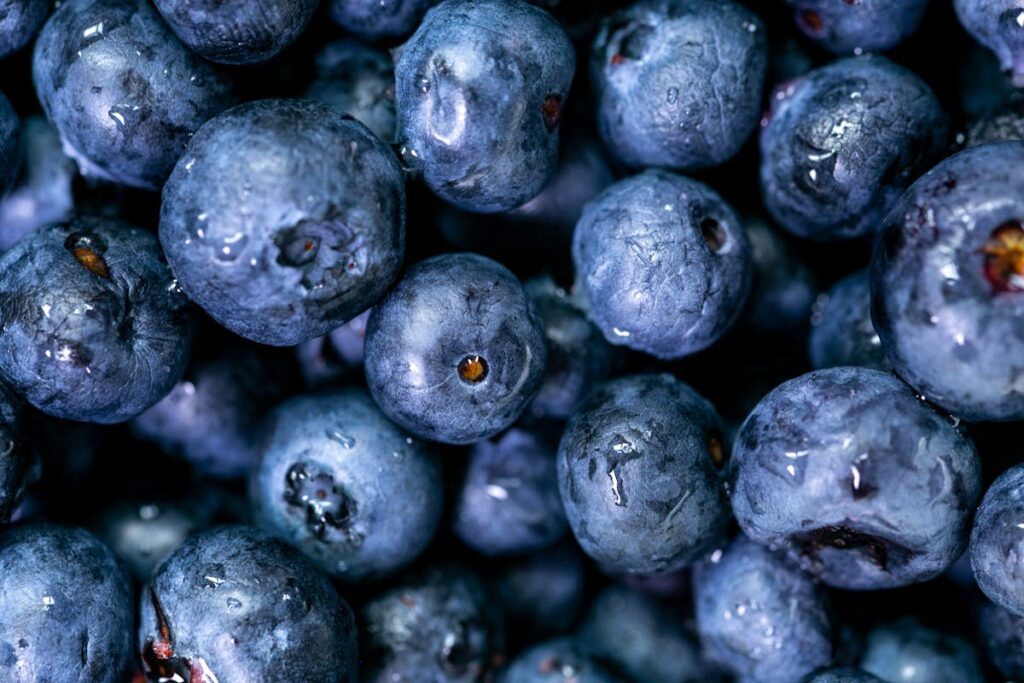
Blueberries are celebrated for their abundant antioxidant levels, making them a strong supporter in combating cell damage and cognitive deterioration. Antioxidants help to neutralize damaging free radicals in the body, lowering the risk of oxidative stress and inflammation, which are both correlated with aging and related conditions.
Research suggests that regularly consuming blueberries can enhance memory and cognitive abilities, thereby making them an important inclusion in a diet geared toward healthy aging. Whether enjoyed fresh, frozen, in smoothies, or baked treats, blueberries provide a tasty and nourishing way to foster brain health and overall wellness as we age.
Watermelon
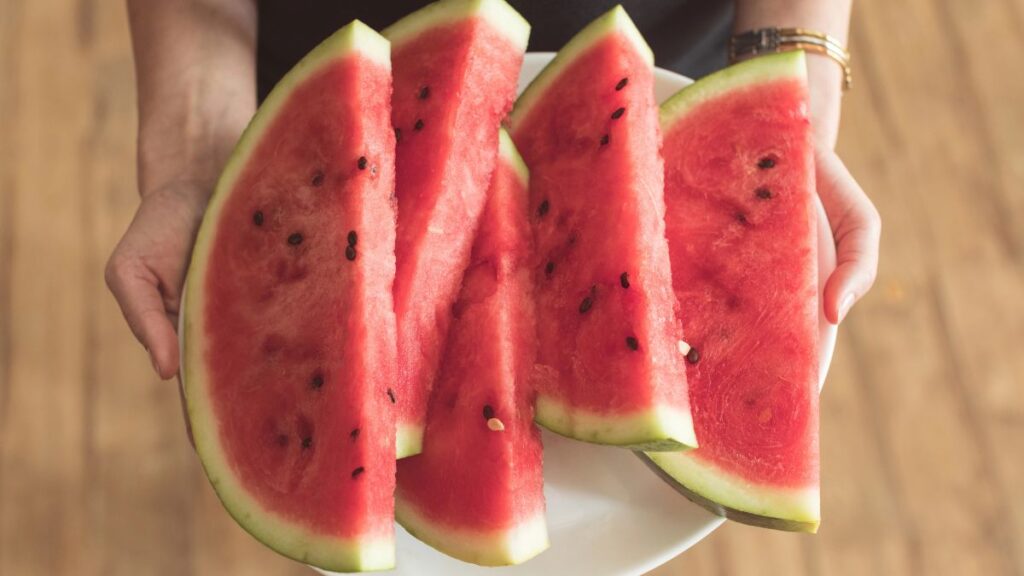
Watermelon is not only a revitalizing fruit for summer but also a hydrating and low-calorie alternative that offers various health benefits. Due to its considerable water content, watermelon is an excellent option for staying hydrated, particularly in warm weather or post-exercise. Additionally, watermelon is rich in vitamins A and C, which are critical for maintaining healthy skin and bolstering immune function.
Its low calorie count makes watermelon an ideal choice for those aiming to manage their weight or simply enjoy a guilt-free treat. Whether enjoyed on its own, blended into smoothies, or added to salads, watermelon is a delightful and nutritious fruit that can promote overall health and hydration.
Kiwi
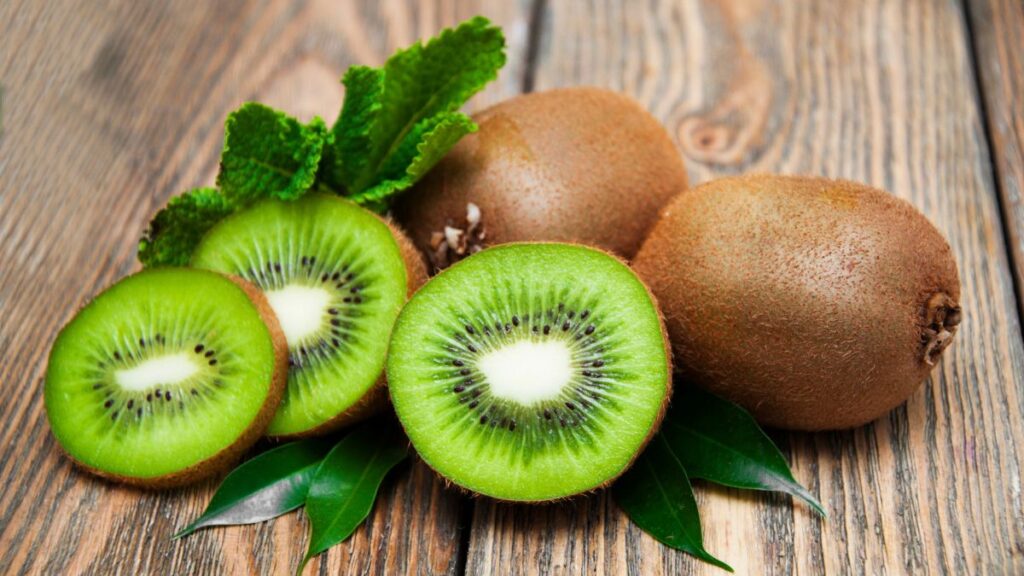
Kiwi fruit is a nutrient-rich powerhouse, abundant in vitamin C and fiber, both of which provide several health benefits. Vitamin C plays a crucial role in fostering a healthy immune system, helping the body fend off infections and illnesses. Moreover, the fiber in kiwi encourages healthy digestion by facilitating regular bowel movements and assisting in nutrient absorption.
The combination of vitamin C and fiber makes kiwi an outstanding choice for maintaining overall health and vitality. Whether eaten by itself, mixed into fruit salads, or blended into smoothies, kiwi is a tasty and nutritious fruit that can seamlessly fit into a balanced diet.
Pomegranates
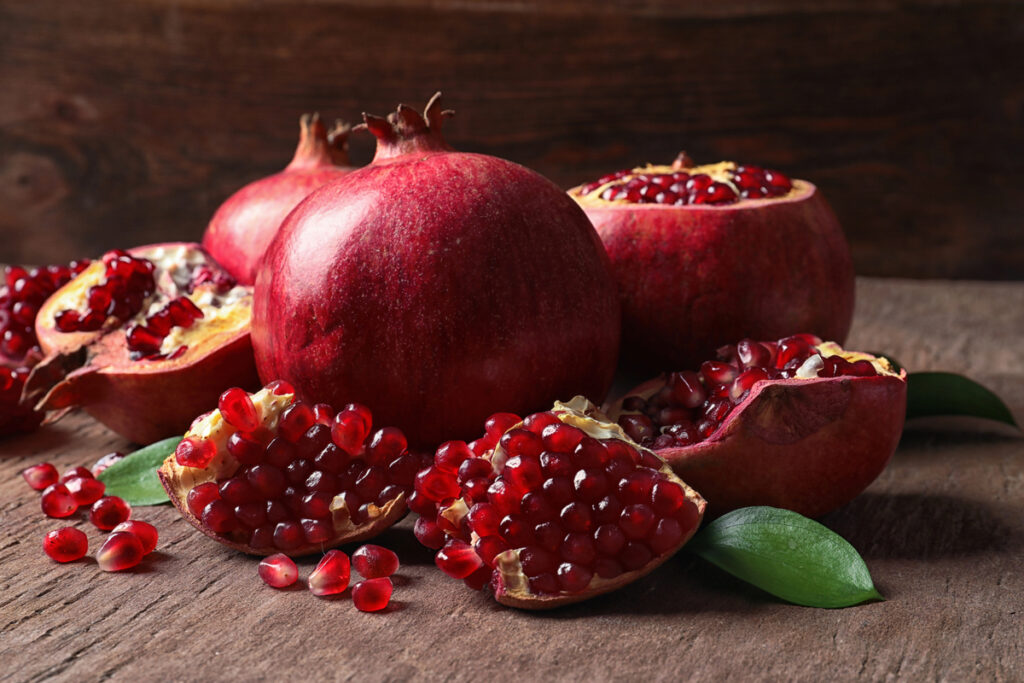
Pomegranates are celebrated for their high antioxidant levels, which can safeguard against cell damage and inflammation. Antioxidants play a vital role in countering free radicals in the body, which are unstable molecules that may harm cells and lead to aging and diseases. The abundant antioxidants in pomegranates are especially advantageous for cardiovascular health, as they can help diminish inflammation and enhance heart function.
Research has also indicated that pomegranate extract may contribute to lowering blood pressure and cholesterol levels, further promoting heart health. Whether consumed as fresh arils, in juice form, or added to salads and desserts, pomegranates are a flavorful and nutritious fruit that can aid in a healthy diet and lifestyle.
Avocados
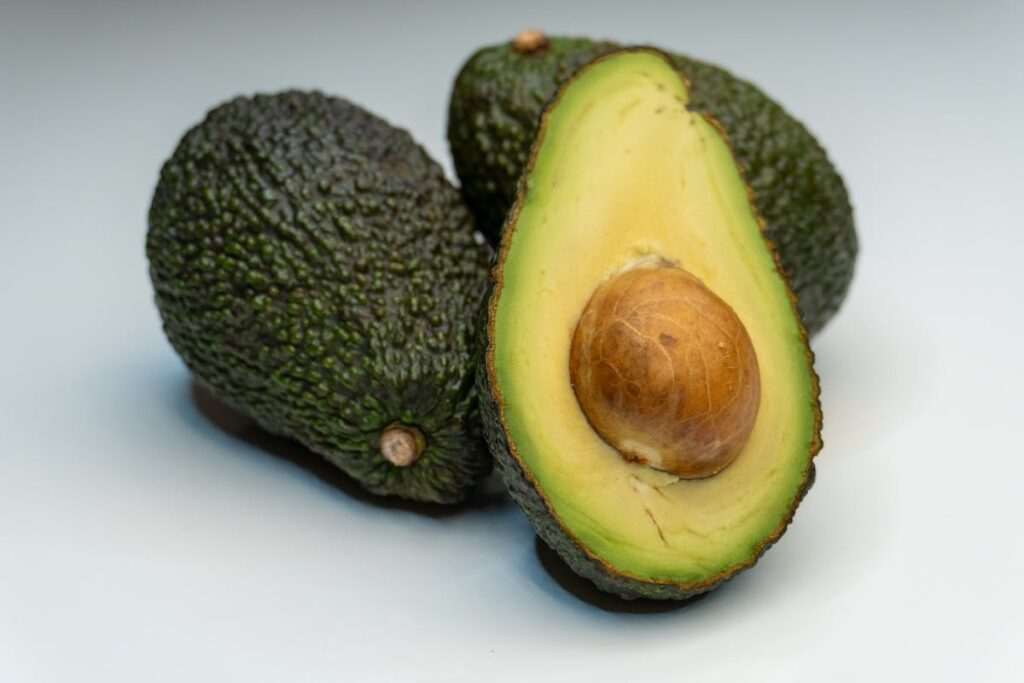
Avocados stand out as a distinctive fruit that is abundant in monounsaturated fats, deemed healthy fats that promote brain function and reduce cholesterol levels. The monounsaturated fats present in avocados are known to enhance brain performance and memory, making them an essential component of a healthy diet. Additionally, avocados contain oleic acid, a monounsaturated fat that aids in lowering LDL cholesterol levels and elevating HDL cholesterol levels, benefiting heart health.
Incorporating avocados into your meals can also enhance nutrient absorption, as they are an excellent source of vitamins E, K, and C, in addition to folate and potassium. Whether savored on toast, included in salads, or blended into smoothies, avocados are a flexible and nutritious fruit that supports overall health and wellness.
Strawberries
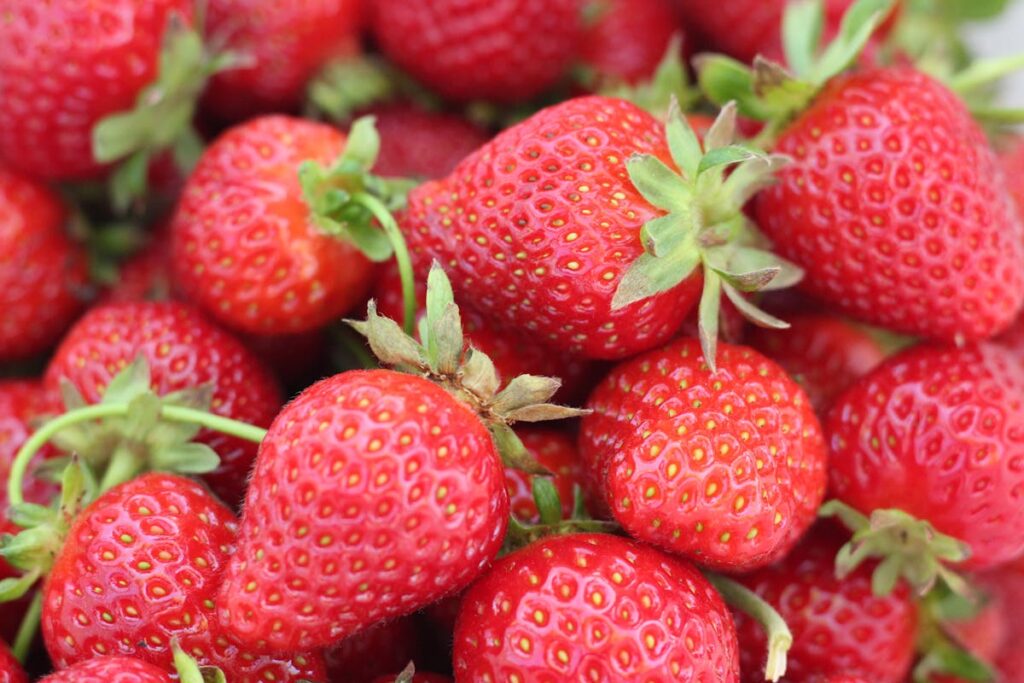
Strawberries are not just delicious and sweet; they are also highly nutritious, loaded with antioxidants and vitamin C that provide various health advantages. Vitamin C is recognized for its ability to boost the immune system, aiding in the defense against infections and illnesses. Furthermore, the antioxidants found in strawberries assist in neutralizing damaging free radicals in the body, which can contribute to aging and chronic ailments.
The synergy of vitamin C and antioxidants positions strawberries as a vital fruit for enhancing skin health, as they help shield against sun-related damage, diminish wrinkles, and enhance overall skin texture. Whether enjoyed fresh, tossed in salads, or blended into smoothies, strawberries are a versatile and delightful fruit that can bolster your immune system and skin wellness.
Mango
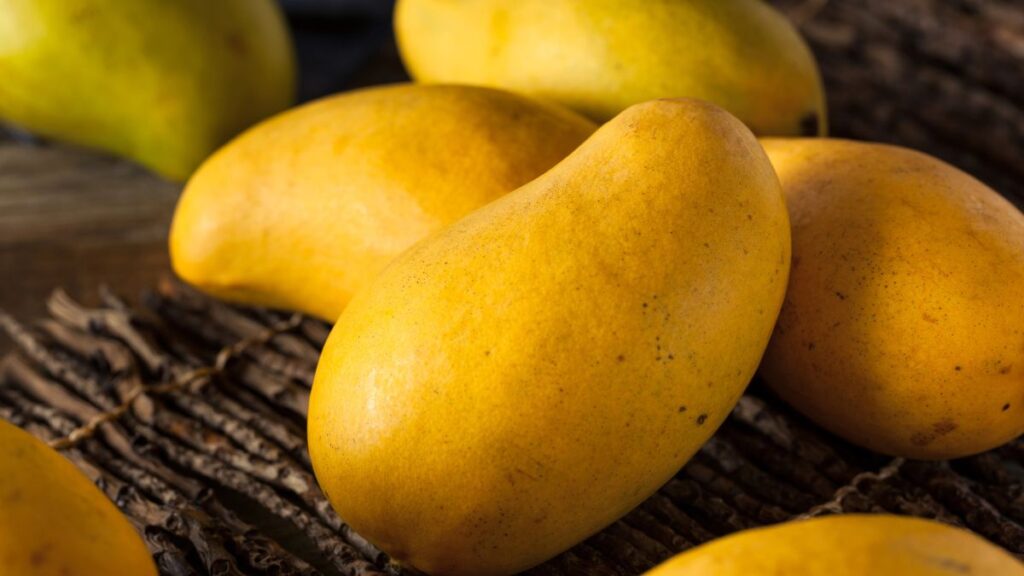
Mangoes are not only delectable but also high in vitamins A and C, which are essential for bolstering immune function and supporting skin health. Vitamin A is important for maintaining healthy skin, mucous membranes, and vision, while vitamin C serves as a strong antioxidant that protects cells from damage and supports immunity.
Additionally, mangoes possess enzymes that aid digestion and may help relieve digestive troubles. The fiber present in mangoes also supports digestive wellness and promotes regular bowel movements. Whether enjoyed on their own, blended into smoothies, or added to salads, mango is a tasty and nutritious fruit that can be an important part of a healthy diet.
Cherries
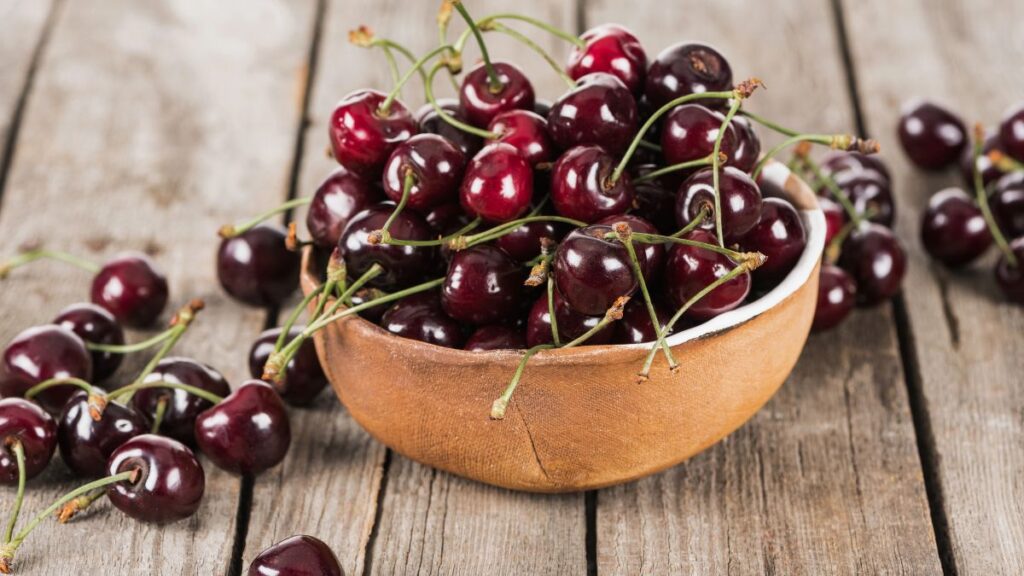
Cherries are a tasty and nutrient-rich fruit loaded with antioxidants, especially anthocyanins and quercetin, which have demonstrated anti-inflammatory effects. These antioxidants can aid in decreasing inflammation within the body and may particularly benefit joint health. Cherries also offer a good amount of vitamin C, necessary for collagen production and supporting the immune system.
Furthermore, they contain melatonin, a hormone that helps regulate sleep patterns and may enhance sleep quality. Whether enjoyed fresh, frozen, or dried, cherries are a versatile fruit that can be a delightful addition to your diet while providing potential health benefits.
Pineapple
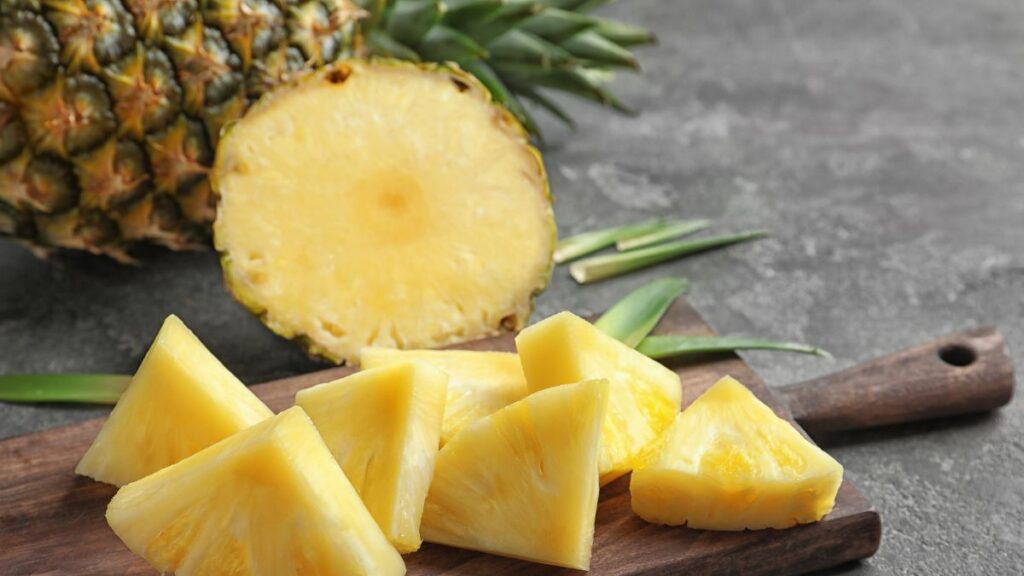
Pineapple is a tropical fruit that features bromelain, an enzyme known to support digestion by breaking down proteins and enhancing nutrient absorption. Bromelain may also possess anti-inflammatory characteristics, making pineapple potentially beneficial for alleviating inflammation and mitigating symptoms of conditions like arthritis.
Apart from bromelain, pineapple is rich in vitamin C, which bolsters immune health and skin vitality. Additionally, it provides a healthy dose of manganese, essential for bone density and metabolic processes. Whether eaten fresh, grilled, or blended into smoothies, pineapple is a versatile and nutritious fruit that can add flavor to a balanced diet.
Papaya
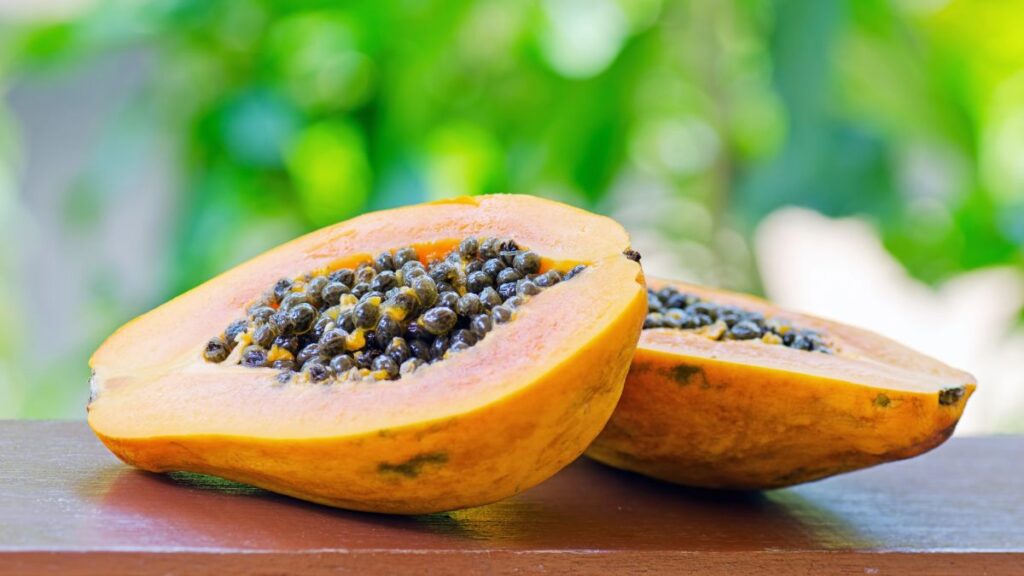
Papaya is a tropical fruit celebrated for its high levels of vitamins A and C, both vital for overall health maintenance. Vitamin A is crucial for proper vision, especially in dim lighting, and contributes to the upkeep of healthy skin and mucous membranes. Conversely, vitamin C acts as a robust antioxidant that enhances immune function and aids in the absorption of iron from plant foods.
Additionally, papaya has an enzyme called papain, which facilitates digestion and may help diminish inflammation. Whether enjoyed by itself, blended into smoothies, or mixed into salads, papaya serves as a flavorful and wholesome fruit that can significantly benefit your health.
Grapes
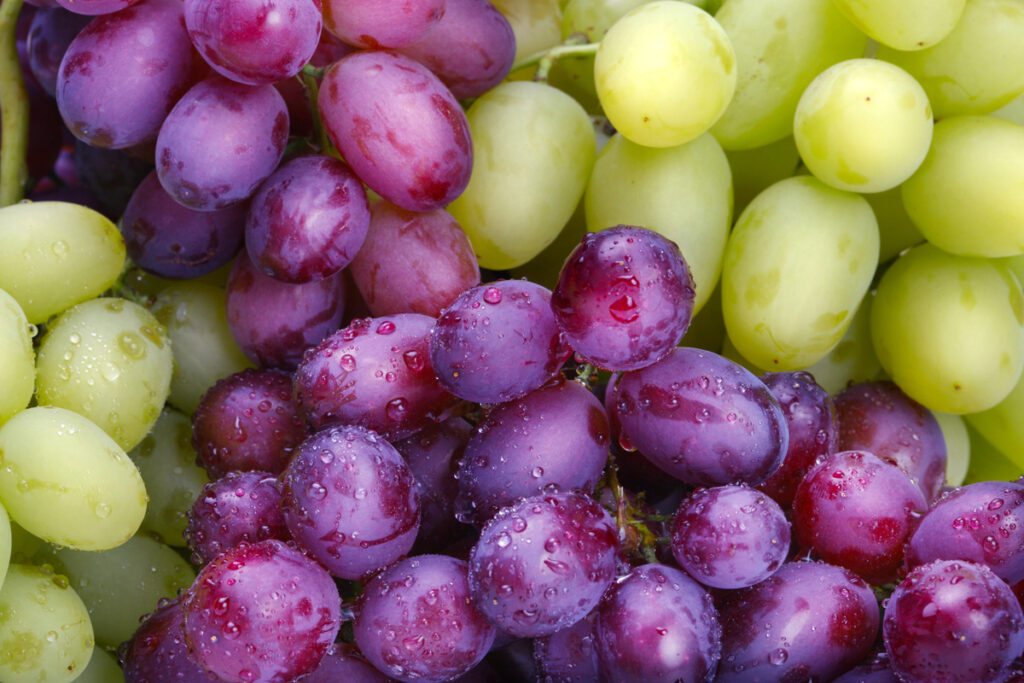
Grapes are a nutritious and adaptable fruit that contains resveratrol, a powerful antioxidant associated with multiple health advantages. Resveratrol is known for its potential to promote heart health by decreasing inflammation and reducing cholesterol levels. Moreover, it may help shield against age-related conditions like Alzheimer’s and specific types of cancer.
Grapes are also abundant in vitamins C and K, along with antioxidants, which can assist in protecting against cellular damage and oxidative stress. Whether consumed fresh, dried as raisins, or made into juice, grapes provide a tasty and convenient means to incorporate various nutrients into your meals.
Raspberries
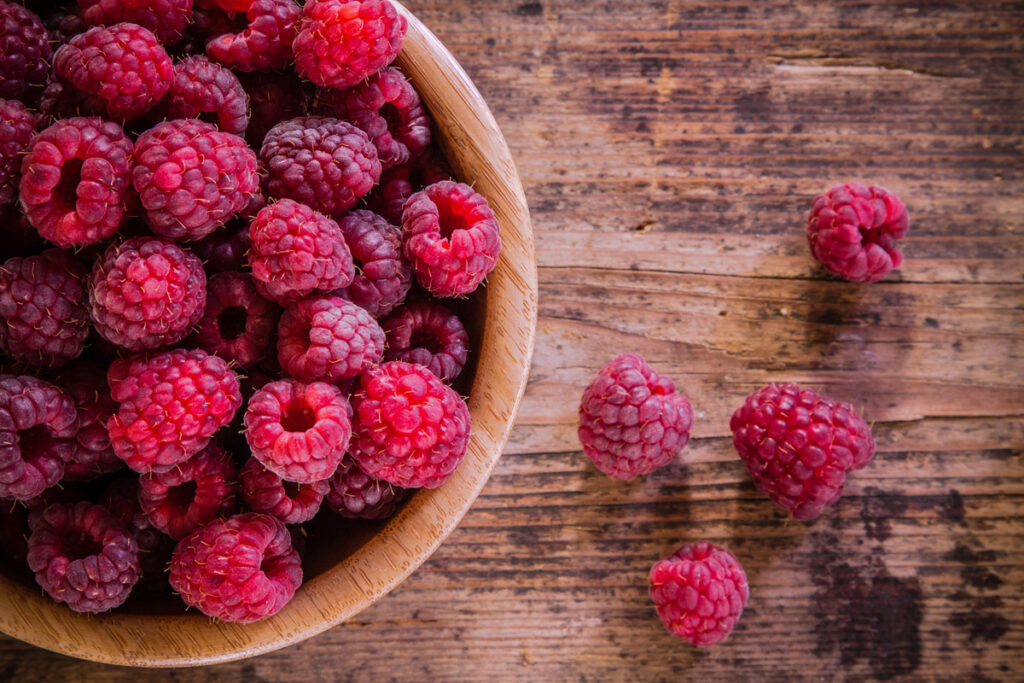
Raspberries are a nourishing fruit that is rich in fiber and antioxidants, proving beneficial for digestive health and decreasing inflammation in the body. The fiber in raspberries helps encourage regular bowel movements and can prevent constipation. In addition, the antioxidants contained in raspberries, such as vitamin C and quercetin, assist in protecting cells from damage resulting from free radicals and lessening inflammation.
Raspberries also contain ellagic acid, which has exhibited anti-cancer properties. Whether enjoyed fresh, frozen, or blended into smoothies, raspberries are a versatile fruit that can be a delicious and healthy complement to your diet.
Blackberries
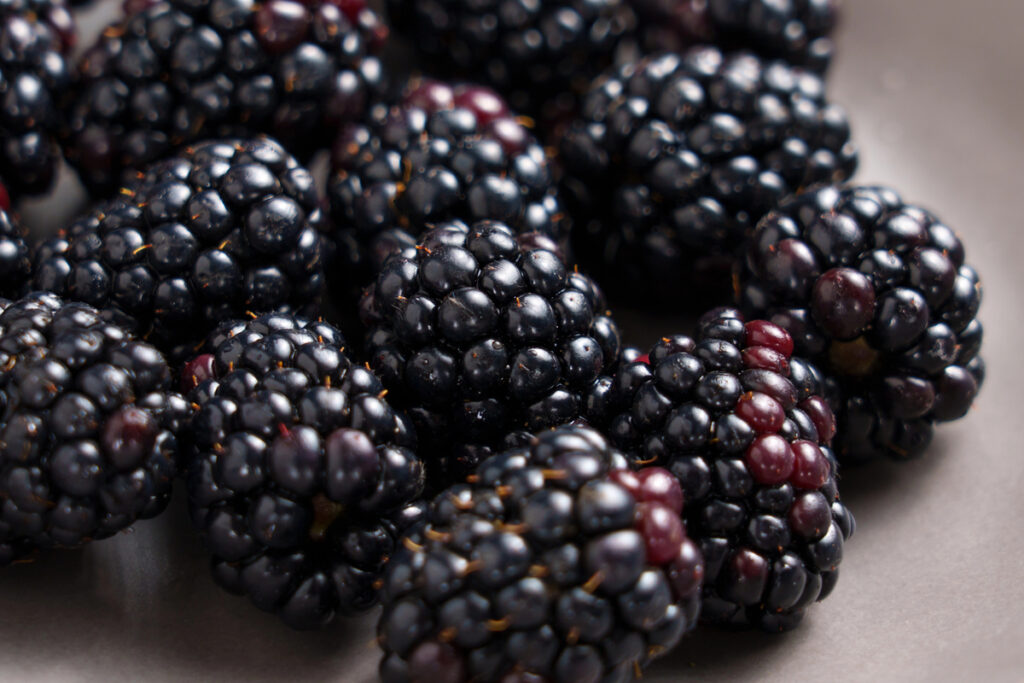
Blackberries are a significant source of antioxidants, particularly anthocyanins, which are associated with multiple health benefits. These antioxidants help safeguard cells against damage and inflammation, potentially lowering the risk of chronic illnesses. Moreover, blackberries are high in fiber, which is essential for digestive health and can aid in regulating blood sugar levels.
The vitamin C found in blackberries also supports immune health and skin vitality. Research indicates that the compounds in blackberries may help guard against cognitive decline and enhance brain function. Whether consumed fresh, frozen, or blended into smoothies, blackberries are a tasty and nutritious fruit that can be a beneficial addition to a health-conscious diet.
Apricots

Apricots are a wholesome fruit that is rich in fiber and antioxidants, making them advantageous for digestion and overall health. The fiber in apricots can assist in preventing constipation and promoting regular bowel movements. Additionally, the antioxidants found in apricots, such as vitamin C and beta-carotene, contribute to cell protection from damage caused by free radicals.
Apricots also provide essential nutrients like potassium, which is crucial for heart health and muscle function. Whether eaten fresh, dried, or cooked, apricots are a flexible fruit that can enhance both the taste and healthiness of your diet.
Guava

Guava is a tropical fruit rich in fiber and vitamin C, making it a healthy option that can enhance digestion and immune health. The fiber in guava aids in promoting regular bowel movements and alleviating constipation. Furthermore, the vitamin C found in guava bolsters the immune system and helps defend against infections and diseases.
Guava is also packed with antioxidants, including lycopene, which can protect cells from damage inflicted by free radicals. Whether enjoyed fresh, as juice, or incorporated into salads, guava is a flexible fruit that can be a tasty and nutritious part of your diet.
Peaches

Peaches are a tasty and healthy fruit that is abundant in vitamins A and C, which are vital for sustaining overall health. Vitamin A plays a crucial role in maintaining healthy skin, vision, and immune function, while vitamin C acts as a potent antioxidant that guards cells against damage and strengthens the immune system.
Moreover, peaches provide a substantial amount of dietary fiber, which aids digestive health and supports regular bowel movements. The antioxidants present in peaches also have anti-inflammatory characteristics, potentially reducing inflammation in the body and minimizing the risk of chronic illnesses. Whether enjoyed fresh, grilled, or blended into smoothies, peaches are a versatile fruit that can be a delightful addition to a nutritious diet.
Cranberries

Cranberries are widely recognized for their benefits related to urinary tract health, as they contain substances that may aid in preventing and treating urinary tract infections. These substances stop harmful bacteria from attaching to the urinary tract walls, thereby decreasing the risk of infection. Beyond their benefits for urinary tract health, cranberries are also packed with antioxidants, which can help alleviate inflammation and decrease the risk of heart disease.
The high levels of polyphenols found in cranberries might also enhance cardiovascular health by reducing the chances of atherosclerosis and lowering blood pressure. Whether consumed as juice or incorporated into dishes for a tangy touch, cranberries are a versatile fruit that can promote overall health and wellness.
Related: 15 Clever Hacks To Reduce That Never-Ending Grocery Bill

Managing grocery expenses can be challenging for many households, especially with rising food costs and fluctuating budgets.
However, with some creativity and resourcefulness, you can implement numerous clever hacks to reduce your never-ending grocery bill without sacrificing the quality or variety of your meals.







